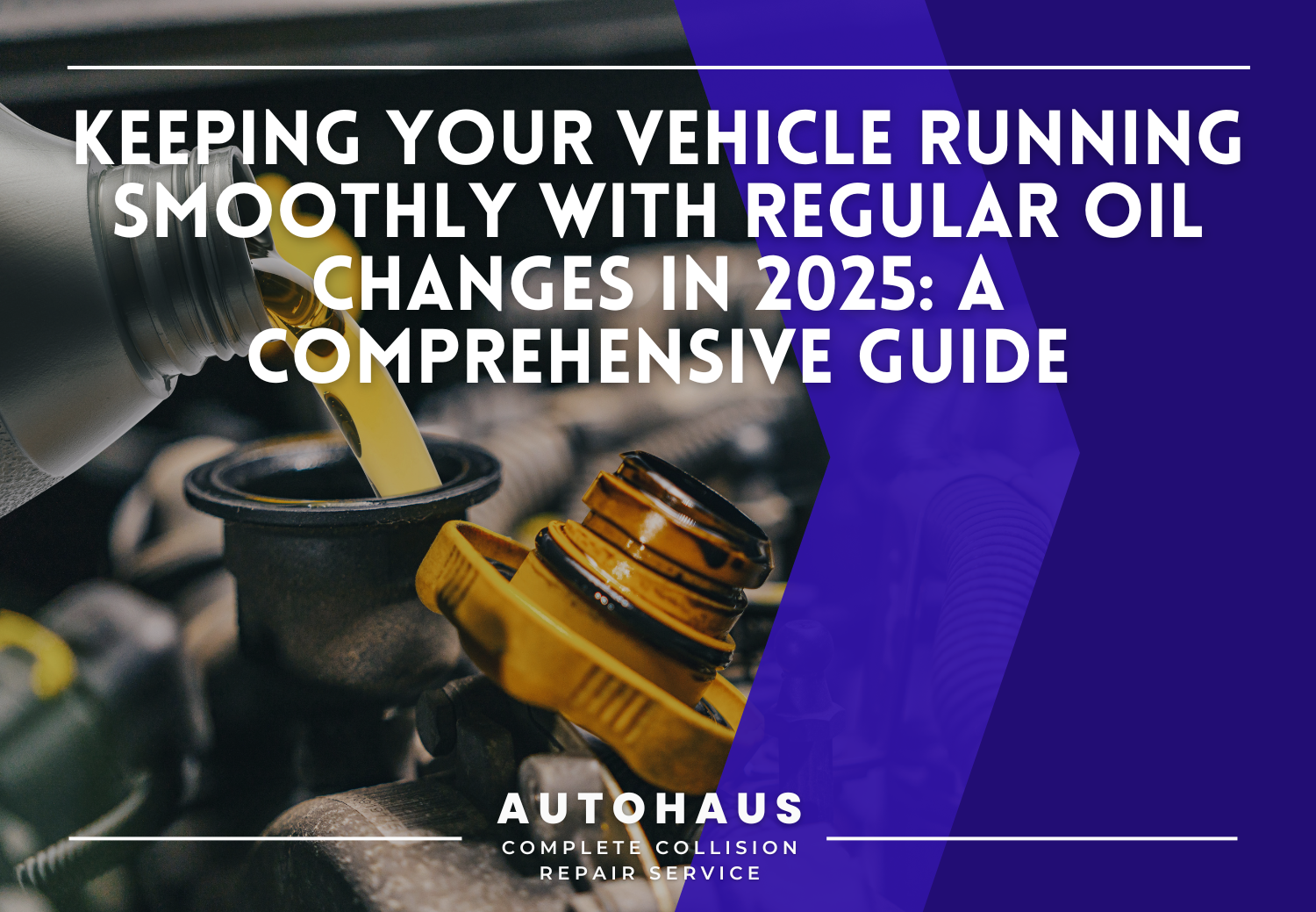
Regular oil changes are one of the most important aspects of vehicle maintenance, ensuring that your engine continues to perform at its best. In 2025, maintaining your car’s engine through oil changes is even more critical as new oils, advanced engine technologies, and changing driving habits influence the performance of modern vehicles. At AutoHaus, we believe in educating our customers on the importance of oil changes, how to choose the right oil for your vehicle, and why staying on top of this routine maintenance is essential for keeping your car running smoothly.
Why Are Regular Oil Changes Important?
Engine oil serves as the lifeblood of your vehicle’s engine, performing several crucial functions that are essential for your vehicle’s health and performance. Here’s why oil changes are so vital:
1. Lubrication and Protection
Oil lubricates the moving parts of your engine, preventing them from grinding against each other and causing friction. Over time, engine oil degrades and loses its effectiveness, leading to increased friction. This can result in overheating, wear, and, eventually, engine failure. Regular oil changes ensure that your engine has fresh oil to protect its parts.
2. Cooling the Engine
Engine oil helps absorb and dissipate heat generated by the engine’s moving components. Overheating can cause serious damage to the engine, but fresh oil helps maintain proper temperature levels and prevents overheating.
3. Cleaning the Engine
Engine oil also acts as a cleaner by picking up dirt, debris, and other contaminants that accumulate in the engine. As the oil circulates through the engine, it traps these particles, helping to keep the engine clean. However, oil can only clean effectively for so long before it becomes saturated with contaminants and needs to be replaced.
4. Improved Performance
When your engine oil is clean and at the right level, the engine can run more efficiently. Regular oil changes help ensure that the engine operates smoothly, improving fuel efficiency, acceleration, and overall performance.
5. Longevity of Engine Components
Proper oil maintenance extends the life of your vehicle’s engine components, reducing the likelihood of costly repairs. An engine that runs with degraded or low oil is at risk of premature wear, which can lead to breakdowns and expensive repairs down the line.
The Advancements in Oil Types for 2025
As automotive technology continues to advance, so does the technology behind engine oils. Here are some of the latest advancements in oils for 2025 and beyond:
1. Synthetic Oils
Synthetic oils have become increasingly popular because they offer better protection, improved performance, and greater resistance to breaking down under extreme temperatures. Modern engines with high-tech components often require synthetic oil to ensure optimal performance and longevity. In 2025, synthetic oils are designed to last longer, provide enhanced fuel efficiency, and protect against wear.
2. High-Mileage Oil
For vehicles with over 75,000 miles, high-mileage oils are specifically designed to provide extra protection for older engines. These oils contain additives that help prevent leaks, reduce oil consumption, and protect seals and gaskets, making them ideal for maintaining the performance of older vehicles.
3. Eco-Friendly Oils
With increasing attention on environmental impact, eco-friendly or "green" oils are gaining traction. These oils are made from renewable resources and help reduce emissions and environmental pollution. While they perform similarly to conventional oils, they are a more sustainable option for those who want to reduce their carbon footprint.
4. Multi-Viscosity Oils
Multi-viscosity oils are engineered to perform well across a wide range of temperatures. They provide better protection in extreme hot and cold conditions, making them ideal for modern vehicles that are driven in a variety of environments and temperatures. In 2025, these oils offer even better performance in fluctuating climates, allowing for more reliable engine protection year-round.
5. Oil Additives
In 2025, the use of oil additives is becoming more common. These additives help reduce engine friction, prevent corrosion, and clean the engine more effectively. They can enhance the performance of both synthetic and conventional oils, contributing to better engine longevity and efficiency.
How Often Should You Change Your Oil in 2025?
The frequency of oil changes depends on a variety of factors, including the type of oil you use, the make and model of your vehicle, and your driving habits. Generally, the following guidelines apply:
However, always refer to your vehicle’s owner’s manual for the manufacturer’s recommended oil change interval. Modern vehicles and synthetic oils may allow for longer intervals, but it's always best to stay on top of maintenance to avoid unexpected issues.
Signs Your Oil Needs Changing
Even if you’re keeping track of oil change intervals, it’s important to be aware of signs that your oil might need changing sooner:
Why Choose AutoHaus for Your Oil Change?
At AutoHaus, we provide expert oil change services using the best oils available for your vehicle’s needs. Whether you need conventional oil, synthetic oil, or high-mileage oil, our experienced technicians ensure your oil is changed quickly and efficiently. We also check other essential fluids during your oil change, ensuring your vehicle operates at peak performance.
Contact us at (703)471-4515 or via email at autohaus4515@gmail.com to schedule your oil change with AutoHaus today!
